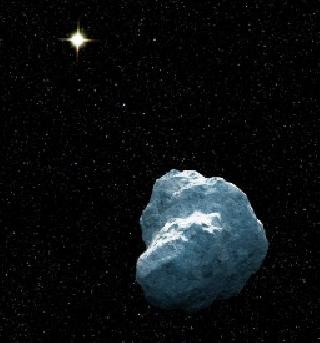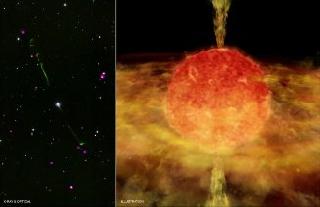
This is an artist's concept of a craggy piece of Solar System debris that belongs to a class of bodies called trans-Neptunian objects. A NASA/ESA photo
CAMBRIDGE (BNS): Peering deep inside the Solar System, NASA’s Hubble Space Telescope has explored a distant region and come across a bunch of tiny particles called trans-Neptunian objects (TNOs).
Residing in the farthest corner of our Solar System beyond the orbit of Neptune, the TNOs are countless icy rocks that receive less sunlight and hence, are difficult to be traced. One of them, Pluto, has been categorised as a dwarf planet. The famous Comet Halley too hails from the same region.
Astronomers from the Harvard-Smithsonian Center for Astrophysics, using data provided by Hubble, have spotted 14 such TNOs. One of them is a binary system with two TNOs orbiting each other like a miniature Pluto-Charon system.
The faint objects range from 25 to 60 miles (40-100 km) – more than 100 million times fainter than objects visible to unaided eye.
Unlike planets which tend to have very flat orbits (known as low inclination), some TNOs have orbits significantly tilted from the ecliptic (high inclination).
Analysing the Hubble data in detail, the researchers have found that smaller trans-Neptunian objects are the shattered remains of bigger TNOs. Over billions of years, these objects smack together, grinding each other down.
“Trans-Neptunian objects interest us because they are building blocks left over from the formation of the solar system,” explained Cesar Fuentes, lead author of the research paper that will talk about the new findings in The Astrophysical Journal.
As the new study has examined only one-third of a square degree of the sky, the astronomers are hopeful to find hundreds of such new objects when they survey a larger area.
 Previous Article
Previous Article Next Article
Next Article











The Indian Air Force, in its flight trials evaluation report submitted before the Defence Ministry l..
view articleAn insight into the Medium Multi-Role Combat Aircraft competition...
view articleSky enthusiasts can now spot the International Space Station (ISS) commanded by Indian-American astr..
view article